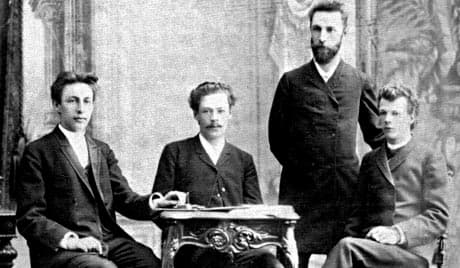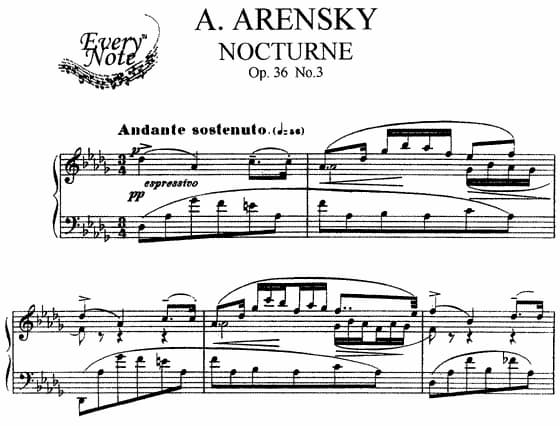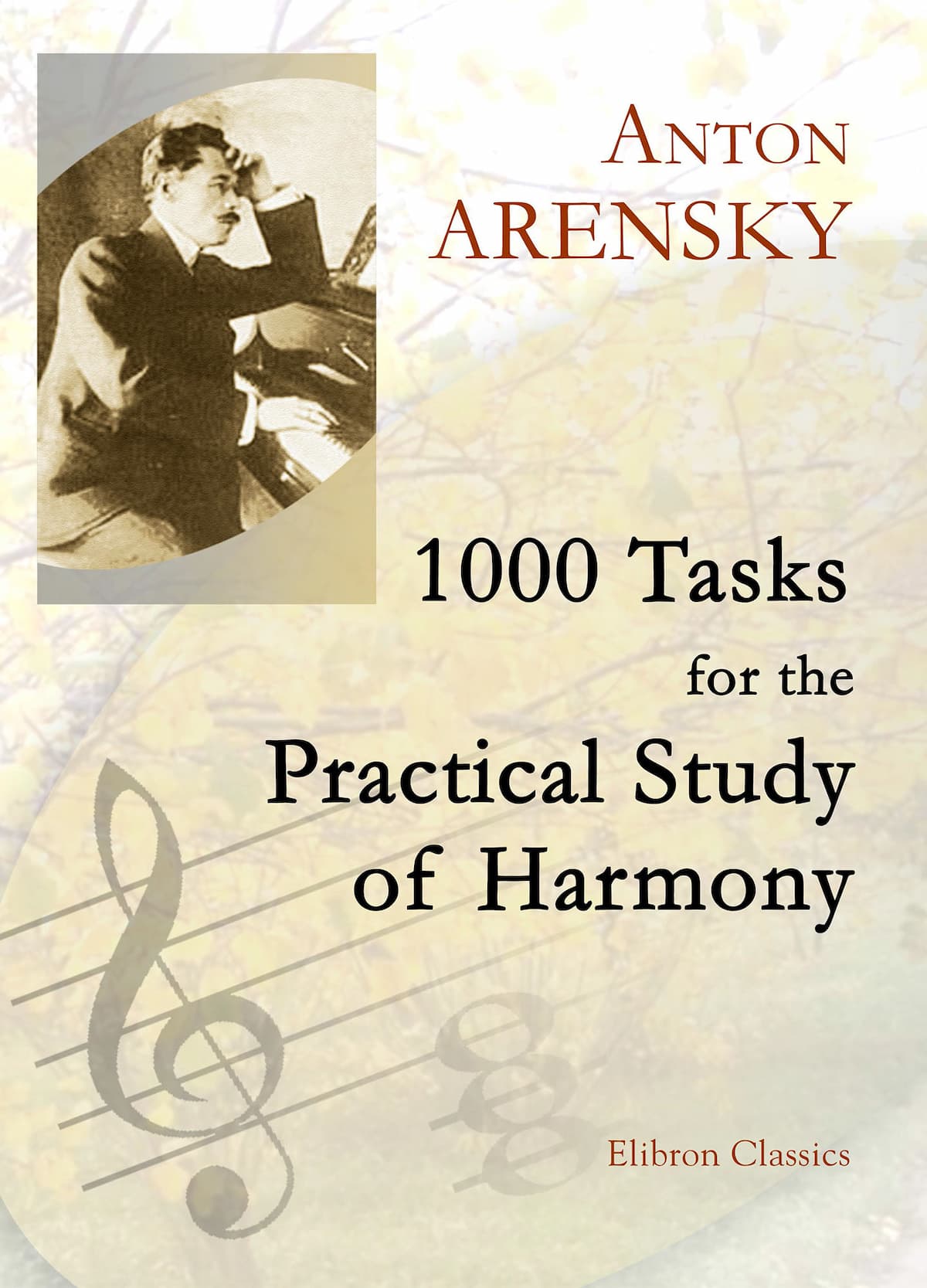Anton Arensky was born on 12 July 1861 in Novgorod, on the banks of Lake Ilmen. His father was a physician and played the cello, and his mother was said to have been a good pianist. Young Anton showed great musical promise as a child, and his first compositions were written around the age of 9.

Anton Arensky
In 1879, his whole family moved to St Petersburg, a city erected following the legendary vision of Peter the Great, “who wanted the city to function as a window towards Western Europe.” The city was described as “something of a Euro-American colony: a large mixture of foreign cultures with a bit of the national Russian spirit.” The idea of musical nationalism arose from “a need for independence in Central and Eastern Europe,” and following this musical awakening, the Conservatoires of St Petersburg and Moscow were founded by the Rubinstein brothers.
Anton Arensky: Piano Concerto in F minor, Op. 2 (Maria Littauer, piano; Berlin Symphony Orchestra; Jörg Faerber, cond.)

Anton Arensky with his students including Rachmaninoff
Anton Rubinstein, who had studied in Berlin, established the St Petersburg Conservatoire after the German models. Not everybody was enthusiastic, and Mily Balakirev founded the famous group of musicians known as “The Mighty Handful.” A scholar writes, “since many of them taught at the Conservatoire of St Petersburg it paradoxically became the school famed for national style and harmonies inspired by folk music.” Arensky initially took private lessons from Karl Karlovich Zikke (1850-1890) before entering the St Petersburg Conservatory. As is well known, he studied composition with Nikolai Rimsky-Korsakov and counterpoint and fugue with Julius Ivanovich Johannsen, a Danish-born music theorist, teacher, and composer. While a student, Arensky showed himself to be exceptionally gifted. “His profound music erudition, understanding of music theory, form and counterpoint, and his agility in writing music were witnessed in the memoirs of many of Arensky’s contemporaries.”
Anton Arensky: Suite No. 1 in G minor, Op. 7 (Moscow Symphony Orchestra; Dmitry Yablonsky, cond.)

Arensky’s Nocturne
Arensky immediately composed a substantial amount of music, and he spent many hours in “the famous societies organized by Rimsky-Korsakov, Balakirev or Belayev. Composers shared their idea of composing a new strain of national music inspired by folk traditions with chosen students including Arensky.” According to scholars, “the Mighty Handful and the first cohort of students at the conservatoire shared a strong interest in Russian folklore, following Glinka’s ambition to form a strong and independent Russian music.” However, Arensky never considered himself a musical rebel. He was not particularly interested in musical folklore or Russian musical identity, but rather combined his native musical influences with a much more cosmopolitan compositional style. He greatly admired the music of Tchaikovsky, and critical voices snidely called Arensky the “mini-Tchaikovsky.” In the event, Arensky graduated with a Gold Medal in piano and composition. Tchaikovsky was hired as an examiner, and he awarded him the highest grade for his harmony exam.
Anton Arensky: 4 Songs, Op. 6 No. 4 “I did not tell you” (Marina Domashenko, mezzo-soprano; Russian Philharmonia; Constantine Orbelian, cond.)

Immediately following his graduation, Arensky was appointed to the faculty of the Moscow Conservatoire, and he soon reached the rank of professor. Tchaikovsky would become his colleague, mentor, and great supporter. During his twelve years of professorship at Moscow, Arensky counted Rachmaninoff, Scriabin, Glière, Grechaninov and Medtner, along with celebrated pianists Goldenweiser and Igumnov, among his students. Glière remembered Arensky as “not an ordinary teacher who must prepare his students for the exam, but a true artist, an exceptionally gifted composer, deeply appreciated and loved not only by the public, but also by the best musicians of that time.” And a contemporary added, “there was so much intelligence and humour in him! He was not distinguished by beauty: stooped, tousled hair, but his eyes burned like coals, and he spoke so captivatingly, so passionately that his rumpled face became appealing.” His compositions might have been neglected, but Arensky was the author of the first methodological books on harmony and form in Russia. His Collection of 1000 tasks for the practical study of harmony has not lost its educational relevance, even today.
For more of the best in classical music, sign up for our E-Newsletter

Where can I get the book harmony and form by Arensky?